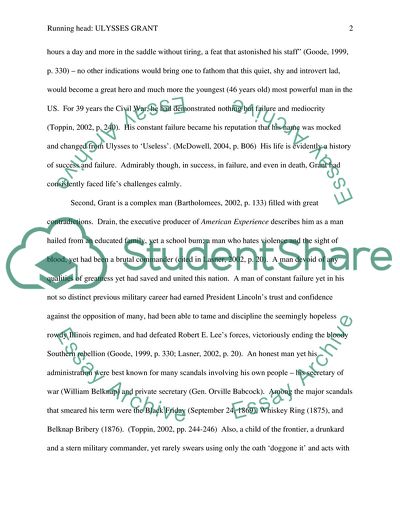Cite this document
(“A Great Civil War Hero and a Great Military Commander Whose Name is Case Study - 1”, n.d.)
A Great Civil War Hero and a Great Military Commander Whose Name is Case Study - 1. Retrieved from https://studentshare.org/history/1750027-elements-of-an-effective-leader-ulysses-grant
A Great Civil War Hero and a Great Military Commander Whose Name is Case Study - 1. Retrieved from https://studentshare.org/history/1750027-elements-of-an-effective-leader-ulysses-grant
(A Great Civil War Hero and a Great Military Commander Whose Name Is Case Study - 1)
A Great Civil War Hero and a Great Military Commander Whose Name Is Case Study - 1. https://studentshare.org/history/1750027-elements-of-an-effective-leader-ulysses-grant.
A Great Civil War Hero and a Great Military Commander Whose Name Is Case Study - 1. https://studentshare.org/history/1750027-elements-of-an-effective-leader-ulysses-grant.
“A Great Civil War Hero and a Great Military Commander Whose Name Is Case Study - 1”, n.d. https://studentshare.org/history/1750027-elements-of-an-effective-leader-ulysses-grant.


